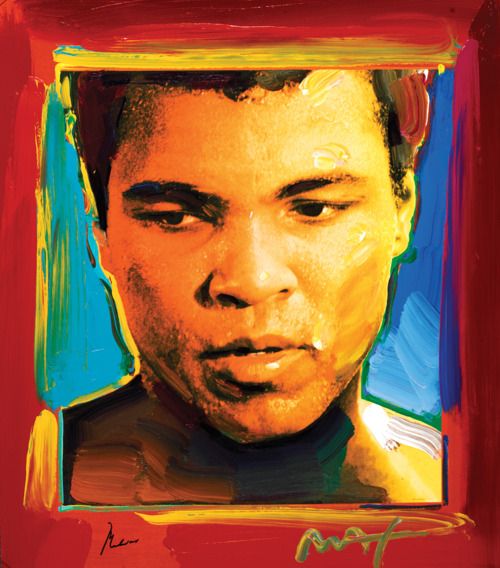Boxing’s great leader was buried on Friday, but Muhammad Ali’s shadow will always loom large over his chosen sport.
Ali was long recognised for his immense fighting skills, fast mouth and social conscience, but must also be acknowledged for how he shaped an entire sport. As boxing’s central figure through the 1960s and 1970s, Ali was the exemplar of pushing the boundaries.
He was exquisitely unorthodox – rope-a-dope went against every trainer’s instinct, for example – and he demonstrated the value of adding entertainer to his CV with supreme wit and an occasionally savage tongue. Tickets to his fights were treasured like gold.
No-one had heard a sportsman speak with such conviction and humour. His flamboyant bombast was over the top and sometimes churlish, but he always delivered with one rousing performance after the next. He became a compelling sports and cultural figure whose transcendent personality gave him a standing that remains beyond compare.
‘Forebears like Joe Louis toed the political line, but Ali was different, and proud’
Don’t forget, his prime years coincided with an era when black men were expected to be meek and compliant. Forebears like Joe Louis toed the political line, but Ali was different, and proud.
Thanks in the main to Ali, boxing is now a vibrant sport that blends entertainment with savagery, shtick with skill. It was he who set the template on how to sell fights. Stare downs and verbal sparring accompany just about every major fight nowadays and octogenarian promoters like Bob Arum and Don King, who polished their games working with Ali, have long given him his due.
The sport is now awash with slick-talking boxers who diss their opponents. The press lap it up and promoters rub their hands in glee. Whatever it takes to sell tickets.
Boxing has also become an enormous staple of pay television. Major fights lubricate the engines of TV companies like HBO and Showtime, who have a carefully honed strategy of identifying prospects, tracking their careers and then showcasing them on the big stages of Madison Square Garden and Las Vegas.
Floyd Mayweather is perhaps the best example of this method, earning millions for both himself and his paymasters because he understands the link between performance and entertainment. The casinos love him, too, because his outsize personality draws fans who flood the gambling halls and spend heavy cash.
The splintering of boxing organisations began at the tail end of Ali’s career and now an assortment of alphabet soup world bodies litter the landscape. This factor has given boxing arguably its biggest black eye, but it has allowed smaller players on the world stage, South Africa included, a crack at the big league. More titles mean more opportunities.
American boxing continues to produce robust TV ratings, but the biggest growth has come from Europe. Not only are Eastern European fighters beginning to dominate – think Gennady Golovkin, Sergey Kovalev and Vasyl Lomachenko – but countries like Germany and England routinely draw crowds in excess of 40 000 where the mythology of boxing is stronger than ever.
Britain is experiencing a golden age. It currently boasts 13 world champions, the most in history, with the 2012 London Olympics having unleashed a wave of excellence that shows no sign of abating.
Closer to home, boxing is in an uneasy state. The local commission has been unstable for years and the tightening economy has put the squeeze on promoters. Even the best boxers are lucky if they fight twice a year. Some, like Chris van Heerden, pitch their tents overseas.
But there are islands of excellence. On Saturday there was a sold-out event at Emperors Palace where, unfathomably, a pair of boxers who each weigh 47kg topped the bill. Appropriately, Tokyo Sexwale delivered a eulogy to Ali.
The Eastern Cape continues to be a hotbed of boxing where adoring crowds come out to support local stars like Simphiwe Khonco, Simphiwe Vetyeka and Macbute Sinyabi.
Zolani Tete is promoted by the UK’s Frank Warren, but the stay-at-home pros who rank among the best are Hekkie Budler, Siyabonga Siyo, Moruti Mthalane and Xolisani Ndongeni; fighters who could hold their own against anyone in their divisions.
Every fighter owes Ali a debt of gratitude.
He was a unique shape-shifter who redefined the parameters – both of his sport and of his people. – © Sunday Tribune

